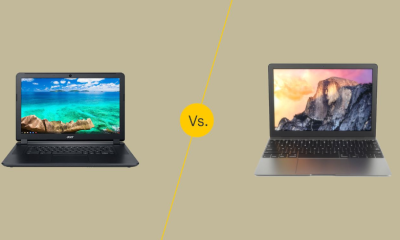Guides
Unlocking Personality: Assessment Guide

Have you ever wondered what makes you tick? Or why you react to certain situations the way you do? Understanding your personality can hold the key to unlocking a whole new level of self-awareness and personal growth. That’s where personality assessments come into play.
Imagine having a roadmap to your own psyche, helping you navigate through life’s twists and turns with greater clarity and confidence. Whether you’re exploring career paths, seeking to improve relationships, or simply striving for personal development, personality assessments offer invaluable insights into who you are and how you interact with the world around you.
In this guide, we’ll delve into the world of personality assessment, shedding light on the various tools and techniques used to decipher the complexities of human behavior. From psychometric tests to empathy assessments, we’ll explore how these instruments can illuminate your strengths, uncover hidden talents, and even shed light on areas for improvement.
So, if you’re ready to embark on a journey of self-discovery and unlock the mysteries of your own personality, join us as we delve deeper into the fascinating realm of personality assessment. Get ready to gain a deeper understanding of yourself and take the first step towards realizing your full potential.
Understanding Personality Assessment
Have you ever stopped to consider what makes you, well, you? Personality assessment isn’t just about categorizing people into neat little boxes—it’s about uncovering the intricate layers that make each of us unique. At its core, personality assessment is all about self-discovery and understanding. It’s about peeling back the layers of our behaviors, motivations, and thought patterns to reveal the essence of who we truly are.
But what exactly is personality assessment? Simply put, it’s a tool—a tool that helps us make sense of ourselves and others. Whether it’s through questionnaires, interviews, or observation, personality assessment methods vary widely, each offering its own lens through which to view human behavior.
But why does it matter? Understanding our own personality can provide invaluable insights into our strengths and weaknesses, preferences, and tendencies. It can help us make more informed decisions, navigate relationships more effectively, and even chart our career paths with greater clarity.
The Power of Psychometric Tests
Ever wondered how employers sift through countless job applicants to find the perfect fit? Or how career counselors help individuals navigate the maze of potential career paths? Enter psychometric tests, the unsung heroes of assessments to test personality.
Psychometric tests are like the Swiss Army knives of the assessment world—they come in various shapes and sizes, each designed to measure different aspects of our personality, abilities, and aptitudes. From assessing cognitive abilities and emotional intelligence to uncovering leadership potential and communication styles, these tests offer a comprehensive snapshot of who we are and what we’re capable of.
But what makes the test to assess psychometric skills so powerful? For starters, they provide objective, quantifiable data—a far cry from the subjective impressions we often rely on when assessing ourselves or others. This means employers can make more informed hiring decisions, and individuals can gain a clearer understanding of their strengths and areas for improvement.
But perhaps the real magic of psychometric tests lies in their ability to unlock hidden potential. By shining a light on our natural talents and aptitudes, these tests can help us identify career paths that align with our passions and abilities, ultimately leading to greater job satisfaction and fulfillment.
Empathy Test: The Key to Emotional Intelligence
Ever find yourself struggling to understand someone else’s point of view? Or wishing you could connect with others on a deeper level? Welcome to the world of empathy, where understanding and compassion reign supreme.
The test to assess empathy is like a mirror that reflects our ability to understand and share the feelings of others. They measure our emotional intelligence—the capacity to recognize, understand, and manage our own emotions, as well as those of others. But why is empathy so important?
In a world where connection is king, empathy is the currency that fuels meaningful relationships. It allows us to step into someone else’s shoes, see the world through their eyes, and respond with kindness and compassion. Whether in personal relationships, professional settings, or everyday interactions, empathy is the glue that binds us together.
But empathy isn’t just a nice-to-have—it’s a crucial skill that can enhance our personal and professional lives in countless ways. From improving communication and conflict resolution to fostering collaboration and teamwork, empathy lays the foundation for stronger, more resilient connections with others.
Choosing the Right Assessment Tool
Navigating the vast landscape of personality assessment tools can feel like searching for a needle in a haystack. With so many options available, how do you know which one is right for you?
First things first, it’s essential to understand your purpose. Are you seeking insights into your own personality for personal growth, or are you looking to evaluate potential career paths? Different assessment tools serve different purposes, so clarifying your objectives is key.
Next, consider the method of assessment. From self-report questionnaires to in-depth interviews, each approach offers its own set of advantages and limitations. For example, self-report questionnaires are convenient and easy to administer, but they rely on the honesty and self-awareness of the respondent. On the other hand, interviews allow for more nuanced exploration but require skilled facilitators to interpret the results accurately.
It’s also important to consider the reliability and validity of the assessment tool. Look for reputable sources and well-established instruments with proven track records of accuracy and consistency.
Practical Applications of Personality Assessment
Now that you’ve taken the plunge into the world of personality assessment, you might be wondering, “What’s next?” Well, buckle up because the possibilities are endless!
One of the most immediate applications of personality assessment is personal growth and self-awareness. Armed with insights into your own strengths, weaknesses, and preferences, you can embark on a journey of self-discovery like never before. Whether it’s identifying areas for improvement or capitalizing on your natural talents, personality assessment lays the groundwork for personal growth and development.
But the benefits don’t stop there. Personality assessment can also be a game-changer in the realm of career planning and decision-making. By understanding your own personality traits and how they align with different job roles and work environments, you can make more informed career choices and set yourself up for success.
And let’s not forget about relationships. Whether it’s with friends, family, or colleagues, understanding the dynamics of personality can enhance communication, foster empathy, and strengthen connections.
Ethical Considerations and Limitations
As we delve deeper into the realm of personality assessment, it’s crucial to shine a light on the ethical considerations and limitations that accompany these powerful tools.
First and foremost, privacy is paramount. When sharing personal information for assessment purposes, it’s essential to ensure that confidentiality is maintained and that data is used responsibly and ethically. Individuals should have full control over how their data is collected, stored, and shared, with clear guidelines in place to protect their privacy.
Another key consideration is the potential for bias. While personality assessments strive to provide objective insights, they are not immune to the biases of their creators or users. It’s essential to critically evaluate assessment tools for any inherent biases and to use multiple sources of information to paint a more comprehensive picture.
Additionally, it’s important to recognize the limitations of personality assessment. No assessment tool is perfect, and all have their strengths and weaknesses. It’s crucial to interpret results with caution, recognizing that they are just one piece of the puzzle and may not fully capture the complexity of human personality.
Conclusion
In the vast tapestry of human experience, understanding ourselves and others is the thread that binds us together. Through the lens of personality assessment, we gain a deeper appreciation for the complexities of human behavior and the endless possibilities that lie within each of us.
As we reach the end of this journey, one thing is abundantly clear: personality assessment is not just a tool—it’s a gateway to self-discovery, personal growth, and meaningful connections. Whether you’re embarking on a quest for self-awareness, seeking guidance in your career path, or striving to deepen your relationships with others, personality assessment offers invaluable insights and opportunities for growth.
But let’s not forget the importance of ethical considerations and recognizing the limitations of these tools. By approaching personality assessment with mindfulness and integrity, we can ensure that it serves as a force for good, enriching our lives and the lives of those around us.
-

 Business5 months ago
Business5 months agoSepatuindonesia.com | Best Online Store in Indonesia
-

 Technology3 weeks ago
Technology3 weeks agoTop High Paying Affiliate Programs
-

 Tech5 months ago
Tech5 months agoAutomating Your Window Treatments: The Advantages of Auto Blinds
-

 Tech5 months ago
Tech5 months agoUnleash Your Potential: How Mecha Headsets Improve Productivity and Focus
-

 Instagram2 years ago
Instagram2 years agoFree Instagram Follower Without Login
-

 Reviews11 months ago
Reviews11 months agoAndroid Laptop vs. Chromebook: Which one is better?
-

 Instagram2 years ago
Instagram2 years agoIGTOK – Get Instagram Followers, Likes & Comments
-

 Business8 months ago
Business8 months agoFollow These 5 Tips To Avail Personal Loans At Lower Interest Rates




















